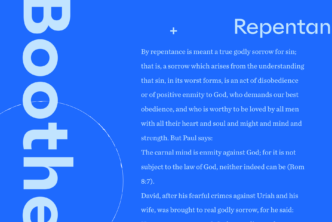In 2019, my Christian counselor broke up with me. We were discussing my anxiety woes and the constant work I was doing to experience the promise of Philippians 4:7.
For the past few years, I had taken Paul’s words in Philippians 4:6 and worked them like a fitness program. When anxiety would rise, I would take to my journal and make my request known to God, asking him for help and giving thanks for every silver lining I could find. Though this was helpful in teaching me how to interact with my anxious feelings, I didn’t always readily or consistently experience the results the “program” promised.
In response to my frustration, my counselor proceeded to talk to me about “sticking thoughts”—uninvited guests who refused to leave. Even though you have escorted them to the door, they find their way back to the couch, sitting cozily under your favorite blanket. While I was thankful for language to describe my experience, I was unprepared for what she would say next:
Yana, I think you have OCD. Here’s why: While you have all the spiritual and theological skills you need to address anxiety in your life, I think you’re not experiencing much relief because your feelings of anxiety aren’t primarily spiritual but physical.
My heart dropped. My mind swirled.
Is something wrong with my body? Have I been coming up short in my battle with anxiety because I’ve been trying to remedy a physical problem with spiritual solutions?
Before I could share my spiraling out loud, my counselor wrote down the contact information of a Christian psychiatrist, prayed for me, and did not pull out her calendar to schedule our next appointment.
We are body and spirit
That moment was a turning point for me, opening up my understanding of what it means to be human. As humans, we are both body and spirit, physical and spiritual.
In the garden, God formed Adam’s physical body from the dust and breathed spiritual life into him, causing Adam to become a living being with somatic and spiritual functions. When Adam and Eve sinned against God, both their bodies and spirits were affected.
If the full scope of our humanity—body and spirit—has been impacted by the fall, then the full scope of our humanity needs salvation, redemption, and a theology that addresses the groanings and needs of our spirits and our body. This becomes especially true when it comes to how our bodies process emotions.
Scriptural evidence of emotions’ impact on the body
When a person is experiencing feelings of sadness and anxiety, these emotions don’t just take up residence in their inner being. They also manifest physically. For example,
- David’s depression produced endless tears (Ps 42:1–3).
- Naomi’s spiritual and emotional grief resulted in her moving her physical body back to a place that felt familiar—home (Ruth 1).
- Even Jesus, filled with compassion and “groanings of the spirit,” audibly wept at Lazarus’ death (John 11:1–33).
Despite the overwhelming evidence in the Bible that reveals the interdependent relationship between our spirits and our bodies, we often treat the two independently, ignoring the body and centering our attention solely on the spirit.
However, as Drs. Dan Allender and Tremper Longman III express in their book, The Cry of the Soul: How Our Emotions Reveal Our Deepest Questions about God, this practice is dangerously shortsighted, especially when it comes to emotions. They write,
It is dangerous to presume that all emotional struggles can be changed by a strictly ‘spiritual’ encounter. For some, a deep spiritual encounter will include embracing biological weakness.1
Elijah: a biblical case of anxiety
We observe Drs. Allender and Longman’s words clearly in the life of Elijah.
After learning that Jezebel desired to kill him, Elijah, filled with fear, “immediately ran for his life” (1 Kgs 19:3). In response to Elijah’s fear, God tends to both Elijah’s physical and spiritual needs. He does this first with a meal, a nap, and some good exercise (1 Kgs 19:5–9).
God’s care for Elijah through food, sleep, and activity teaches us that sometimes before we can care for our spiritual or emotional needs (or someone else’s), we need to care for our physical needs. Before we can renew our sense of security and safety, we need to regulate and quiet our noisy bodies to make way for our spiritual needs to be met.
God’s response to Elijah’s anxiety
Now that Elijah’s body is quiet, God moves from caring for Elijah’s physical needs to addressing his spiritual one–an encounter with God’s presence.
God approaches Elijah asking, “What are you doing here, Elijah?” In response, Elijah confessed the content of his fear.
We often see this in Scripture: when someone confesses their fears to the Lord, he responds by reassuring them of his presence.
- When Moses confessed his hesitancy to accept God’s call to lead the Israelites out of the bondage of Egypt, God responded, “I will certainly be with you” (Exod 3:12).
- When it came time for Joshua to replace Moses and lead God’s people into the promised land, God commanded him to not be afraid or discouraged because he would be with him wherever he went (Josh 1:1–9).
- When David was in the valley of the shadow of death, his comfort was not in his sword but in the good Shepherd who was with him (Ps 23:4).
- When the disciples were fearful in response to Jesus’s announcement of his coming departure, Jesus sought to comfort them with the good news of the Comforter who would soon live inside them (John 14).
- And when Paul commanded the church at Philippi to not be anxious, the basis for his instruction was God’s nearness (Philippians 4:5).
In reading Paul’s instruction to be anxious for nothing apart from its literary context, I had missed God’s presence as an essential theological framework for interpreting and interacting with my feelings of anxiety. Though I was praying to God often, I was praying to him as if he was unaware and distant from what I was facing, not in the thick of it with me.
This paradigm shift brought so much relief, especially when I was able to quiet my body well enough to remember the God who is near to me is the all-powerful, all-loving, all-wise God of the universe.
In the case of Elijah, God’s nearness addressed Elijah’s fears in the following ways:
- Because God is near, Elijah is reminded that the effectiveness of Elijah’s ministry does not rest on his shoulders. It’s God’s ministry, not his. God will ensure the intended end. Elijah is only to be a messenger.
- Because God is near, Elijah can trust that his life is in God’s hands and that it will not be taken apart from God’s wise and loving authorization.
- Finally, in God’s presence, Elijah is reminded that he is not alone or without help, but that God is with him.
Truth: anxiety’s sweet relief
After tending to Elijah’s physical needs with a meal and nap and his spiritual needs with his presence, God provides Elijah with one final means of relief—truth.
Elijah is operating out of the false belief that there are no more prophets in Israel and that all of Israel has abandoned the worship of Yahweh for the worship of Baal. In his final words to Elijah, God reveals that this is simply not true. In fact, there are “seven thousand” people in Israel that never bowed to or kissed the mouth of Baal.
Sometimes the cheesy F.E.A.R. acronym that short-sightedly defines fear as false evidence appearing real applies. While Elijah’s impulse for running was based on the very real truth that Jezebel sought to take his life, it was also built on the falsehood that he was alone and that there was no hope for Israel. God, in his grace, makes Elijah privy to this information, relieving his fears and helping him to re-enter his life with a renewed sense of clarity and assurance.
Thinking on truth
In the above episode of Elijah’s life, God reveals to us practical ways to respond to an anxious heart and body. He provided the gifts of restorative rest, his reassuring presence, and truth. This model fits well with that of Paul’s instruction in Philippians 4:6–7.
While we would be hard-pressed to advocate for the need for restorative rest through food and sleep in the face of anxiety from this text, we can advocate for the need for God’s reassuring presence and truth.
As previously stated, we observe the need for the anxious spirit and body to experience God’s presence in the verse prior to Paul’s command. In the verses following Paul’s command, he calls for truth. He writes,
The Lord is near. Don’t worry about anything … Finally, brothers and sisters, whatever is true, whatever is honorable, whatever is just, whatever is pure, whatever is lovely, whatever is commendable—if there is any moral excellence and if there is anything praiseworthy—dwell on these things.—Philippians 4:5–9
Sometimes, anxiety lies. When it’s telling a lie, it helps to replace those lies with truths.
But what about when it’s telling the truth? In those moments, we inform our very real fear with even greater truths.
Paul invites the anxious person to do just that by calling them to cease ruminating on what they may be lacking and instead dwell on the good—to ruminate on that which is true and honorable, true and lovely, true and praiseworthy.
Now, this invitation isn’t to be interpreted as an exercise in positive thinking, where you ward off all the bad vibes and only center your thoughts on good ones. This is an invitation to recognize what’s true—even while still recognizing your very real fear.
An invitation to allow your fears and whatever is true to talk to one another with the hope that the more you they talk, whatever is true will begin to neutralize your fears. Only then will we, like Elijah, be able to make our way fully out of the fight-or-fear cycle and re-enter our worlds with a peace that surpasses all understanding, a peace our bodies and spirits need.
Healing for the anxious heart
At its core, anxiety is about two things: certainty and capacity.
In the face of a threat, we become anxious because we aren’t uncertain of the harm the threat will cause and don’t believe we have the capacity (or resources) to neutralize or resolve the threat. Though, as finite humans, we will often live with a limited amount of certainty and capacity, the God who is with us does not. God sits outside of time with absolute certainty. His eye is simultaneously on our present and our future. God’s capacity is limitless. His power is inexhaustible. He’s never been met with a challenge.
For the anxious heart wrestling with anxiety, remembering these truths about God allows them to “make their request known to God” with confidence and contentment. We can be confident because even if they don’t have the capacity or resources to neutralize the threat, God does, and he will use his capacity to bring about his desired outcomes.
We can be content because even though we are uncertain of the harm the threat might bring, we can be certain that no matter what, the all-powerful, all-loving, all-wise God is with us. He is our portion and will shepherd us through every valley.
Related articles
22 Bible Verses for Anxiety
5 Myths about Anxiety that Sabotage Christians
Related resources
Deconstructing Anxiety: The Journey from Fear to Fulfillment
The Anxious Christian: Can God Use Your Anxiety for Good?
Overcoming Anxiety: Your Biblical Guide to Breaking Free from Fear and Worry
Common Misconceptions About Common Christian Problems (1.5 hour course)
Regular price: $19.99

When Anxiety Strikes: Help and Hope for Managing Your Storm (audio)
Regular price: $19.99

Moving Beyond Anxiety: 12 Practical Strategies to Renew Your Mind (audio)
Regular price: $19.99
Anxiety: Finding Comfort and Reassurance from God (LifeGuide Bible Studies)
Regular price: $7.99






